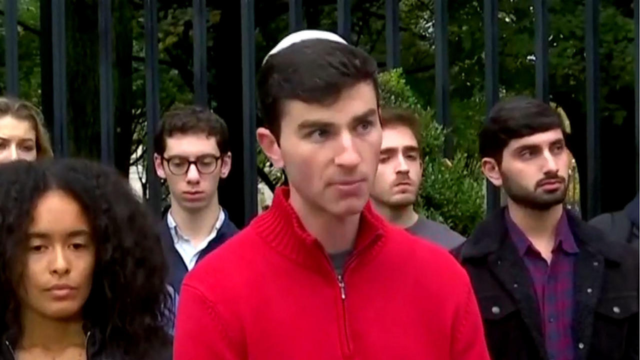Harvard, M.I.T., and the University of Pennsylvania are grappling with challenges as donors issue threats, calls for the resignation of university presidents, and a congressional investigation. The universities are facing criticism for their handling of antisemitism on campus.
At the University of Pennsylvania, discussions among university trustees revolve around the future of President Elizabeth Magill. This scrutiny comes after her congressional testimony on Tuesday sparked controversy. Magill faced backlash for avoiding a direct answer to the question of whether she would take disciplinary action against students advocating for the genocide of Jews.
The responses from Elizabeth Magill of the University of Pennsylvania, Claudine Gay of Harvard, and Sally Kornbluth of M.I.T. during a House committee meeting triggered accusations that they were not doing enough to protect their students from antisemitism. While all three claimed to have taken action against antisemitism, critics argue that their efforts were insufficient or may have contributed to fostering antisemitism on their campuses.
In light of these concerns, a House committee has initiated an investigation into Harvard, M.I.T., and the University of Pennsylvania. The committee’s chairwoman criticized the institutions for not effectively addressing the “rampant antisemitism” on their campuses following the Hamas attack on Israel on Oct. 7 and the subsequent Israeli invasion of Gaza.
Representative Virginia Foxx, the Republican from North Carolina who heads the Committee on Education and the Workforce, announced an inquiry into the learning environments and disciplinary procedures at Harvard, M.I.T., and the University of Pennsylvania. She emphasized that the panel would not hesitate to issue subpoenas during the investigation.
In a statement, Ms. Foxx expressed concern about the “disgusting targeting and harassment of Jewish students” at these institutions. She also cautioned that other universities could face investigations, as similar failures have not gone unnoticed.
Senator Kirsten Gillibrand, a Democrat from New York, has called for the departure of all three university presidents. In an interview with Fox News, she stated, “You cannot call for the genocide of Jews, the genocide of any group of people, and not say that that’s harassment.”
At the National Menorah Lighting in Washington, Doug Emhoff, the husband of Vice President Kamala Harris, voiced his criticism of the university leaders. Mr. Emhoff, who is Jewish, expressed his dismay, saying, “Seeing the presidents of some of our most elite universities literally unable to denounce calling for the genocide of Jews as antisemitic — that lack of moral clarity is simply unacceptable.”
Elizabeth Magill, the president of the University of Pennsylvania (Penn), is facing increasing pressure within the university community. The advisory board at Wharton, Penn’s business school, sent a letter to Ms. Magill this week, stating that “the university requires new leadership with immediate effect.”

Hedge fund manager Ross L. Stevens has also taken a significant step, announcing his decision to withdraw a donation of approximately $100 million meant for funding the Stevens Center for Innovation in Finance at Penn. In an email to his staff on Thursday, Stevens indicated that, “Absent a change in leadership and values at Penn in the very near future,” he plans to rescind shares in Stone Ridge Holdings Group.
Lawyers representing Mr. Ross L. Stevens and Stone Ridge expressed their dismay over the University of Pennsylvania’s stance on antisemitism on campus. In a separate letter to the university’s general counsel, they informed her of Mr. Stevens’ decision to withdraw his donation.
At an emergency telephone meeting on Thursday, Penn’s board of trustees opted not to vote on the removal of President Elizabeth Magill, who had previously apologized for her testimony. Instead, they urged Ms. Magill and other leaders to articulate the university’s values more clearly. Requests for interviews with university officials went unanswered.
Governor Josh Shapiro of Pennsylvania, a nonvoting member of Penn’s board, disclosed that he had urged the board to determine whether Ms. Magill’s testimony accurately reflected the university’s values.
“I anticipate they’ll convene again in the coming days, and I expect them to carefully consider that question,” he stated, addressing reporters after visiting Penn Hillel, a Jewish campus group. “That’s a question for them to answer, not me.”
The governor mentioned that Jewish students at Hillel informed him that they didn’t feel supported by the administration. Some also expressed a lack of support from their professors.
Meanwhile, at M.I.T., the governing board strongly endorsed Dr. Kornbluth’s leadership, stating, “She has done excellent work in leading our community, including in addressing antisemitism, Islamophobia, and other forms of hate. She has our full and unreserved support,” in a statement sent to the university’s students, faculty, and staff.
Dr. Gay of Harvard issued a clarification on Wednesday, stating, “Let me be clear: Calls for violence or genocide against the Jewish community, or any religious or ethnic group are vile, they have no place at Harvard, and those who threaten our Jewish students will be held to account.”
However, David Wolpe, a prominent rabbi, expressed deep-seated concerns about the issues at Harvard. He officially resigned on Thursday from Harvard’s antisemitism advisory committee, which was established after the Oct. 7 attack.
In a social media post, Rabbi Wolpe commended Dr. Gay as a “kind and thoughtful person” and acknowledged that most students were not pushing an ideological agenda. Despite this, he felt that antisemitism was deeply rooted, making it challenging for him to bring about the impact he had hoped for.
Wolpe identified a significant part of the problem as a “simple herd mentality,” where people echo slogans without understanding their meaning or implications, or avoid taking unpopular positions to avoid being disliked.




